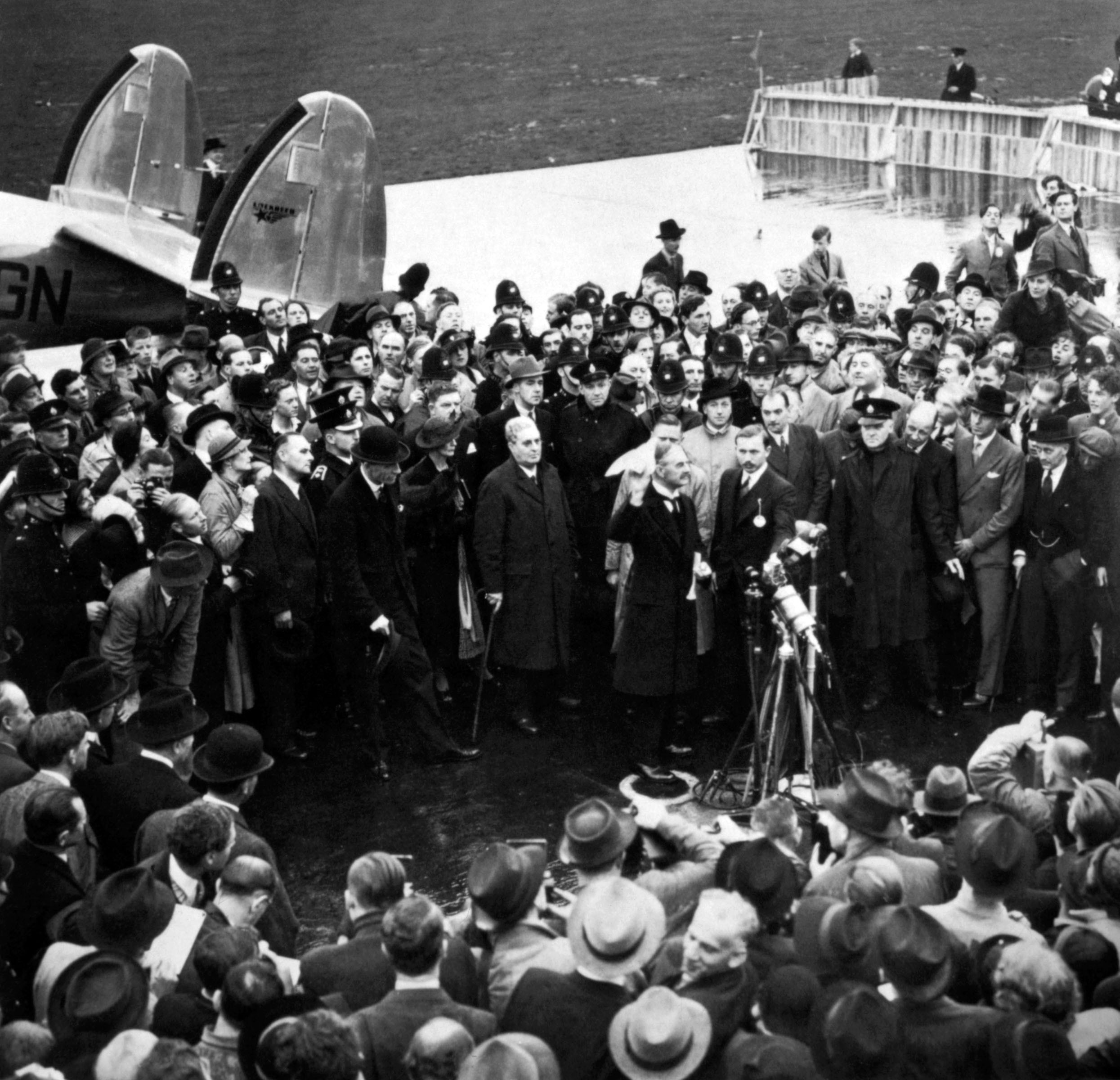Munich, << MYOO nihk, >> Agreement, made on Sept. 29, 1938 in Munich, Germany, was an attempt by the United Kingdom and France to prevent war by agreeing to German demands for more territory. The two nations accepted Germany’s demand for the Sudetenland, a region in Czechoslovakia. They believed Germany would, in return, end its aggressive expansion. But Germany soon violated the agreement by seizing more of Czechoslovakia, tilting Europe toward World War II (1939-1945).

Background.
At the end of World War I (1914-1918), the Sudetenland became part of the new country of Czechoslovakia. The region had about 2,800,000 Germans and about 800,000 Czechs. It covered about 11,000 square miles (28,500 square kilometers). Czechoslovakia had military outposts throughout the mountainous Sudetenland to defend against German invasion.
Germany annexed Austria in March 1938. The German dictator Adolf Hitler then threatened to invade Czechoslovakia. He claimed that the Czechoslovak government was mistreating German residents of the Sudetenland. That summer, Germany began preparing to invade.
Agreement.
Neville Chamberlain, the British prime minister, sought a way to avoid war. He twice met with Hitler in September, but their negotiations failed. On September 28, Hitler invited Chamberlain, as well as leaders Edouard Daladier of France and Benito Mussolini of Italy, to a conference. It took place in Munich on September 29 and resulted in the Munich Agreement.
The pact allowed Germany to annex the Sudetenland. It called for a commission to supervise Germany’s occupation of the region and to define the new border. The United Kingdom and France also agreed to protect Czechoslovakia from aggression. But Germany and Italy said they would guarantee Czechoslovakia’s borders only after Polish and Hungarian claims to areas they had lost to Czechoslovakia were settled. The Munich Agreement at first seemed to have prevented war. Chamberlain returned to cheering crowds in England and announced “peace in our time.”
Consequences.
In March 1939, Hitler violated the agreement and sent German troops to invade western Czechoslovakia. Germany attacked Poland on September 1. On September 3, the United Kingdom and France declared war on Germany, and World War II began.
The German occupation of Czechoslovakia brought widespread suffering to the country. At the end of World War II, the Sudetenland again became part of Czechoslovakia. The Czech government then expelled over 2 million Germans from the region.
The Munich Agreement became the classic example of a failed policy of appeasement—that is, making concessions to an aggressive nation to avoid war. After Munich, such agreements were thought to invite war rather than to prevent it.
See also: World War II (The failure of appeasement) .
